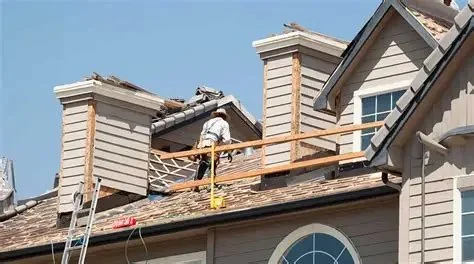
- 1. Why Timing Matters for Roof Replacement
- 2. Spring – Advantages and Challenges
- 3. Summer – Is It Too Hot for Roof Replacement?
- 4. Fall – The Best Season for Roof Replacement?
- 5. Winter – Considerations for Cold-Weather Roofing
- 6. Real Examples of Seasonal Roof Replacement
- 7. Why Total Roofing Hub Is a Trusted Choice
1. Why Timing Matters for Roof Replacement
Homeowners often ask, “What’s the best time of year to replace your roof?” The truth is, timing can greatly influence installation quality, costs, and the longevity of your new roof. Seasonal weather conditions, contractor demand, and material performance all play key roles. Choosing the right season ensures fewer delays, better sealing, and long-term durability.
2. Spring – Advantages and Challenges
Spring is often considered an ideal time for roof replacement because of mild weather. Contractors can work efficiently without the risk of extreme heat or cold. However, spring storms and unpredictable rain showers can sometimes cause delays. Many homeowners book early in spring to secure better scheduling before the busy summer season.

Quality Roofing Express
ScrantonLackawanna CountyPennsylvania
614 N Rebecca Ave, Scranton, PA 18504, USA
3. Summer – Is It Too Hot for Roof Replacement?
Summer provides long daylight hours and generally dry weather, but in hotter regions, extreme heat can make roof replacement more challenging. Shingles may become soft, affecting installation quality. Contractors may also charge more during peak summer months when demand is at its highest. That said, early summer is still a practical choice for many U.S. homeowners.
4. Fall – The Best Season for Roof Replacement?
Most roofing experts recommend fall as the best time of year to replace your roof. The cool, stable weather allows shingles to properly adhere, ensuring a tight seal before winter. Contractors are usually less rushed compared to the summer season, and your home is well-prepared for cold months ahead. This makes fall the most strategic option for long-term roof performance.
5. Winter – Considerations for Cold-Weather Roofing
While winter roof replacement is possible, it comes with challenges. Cold weather can cause shingles to become brittle, requiring special handling. Snow and ice may delay installation, but if your roof is severely damaged and can’t wait, some contractors offer specialized cold-weather techniques. Homeowners in warmer U.S. regions may still find winter to be a viable option.
6. Real Examples of Seasonal Roof Replacement
Take for example a family in Ohio who delayed roof replacement until summer. They faced higher costs and struggled with heat-related delays. Meanwhile, a homeowner in Colorado scheduled roof work in October and enjoyed lower costs, better installation quality, and peace of mind heading into snowy months. These real-world cases highlight why considering the season matters when asking, “what’s the best time of year to replace your roof?”
7. Why Total Roofing Hub Is a Trusted Choice
Regardless of the season, choosing the right contractor is as important as choosing the right time. Total Roofing Hub connects homeowners with reliable roofing experts who understand seasonal challenges and offer tailored solutions. Whether you’re planning for spring, fall, or an urgent winter replacement, Total Roofing Hub ensures you make the best decision for your home.


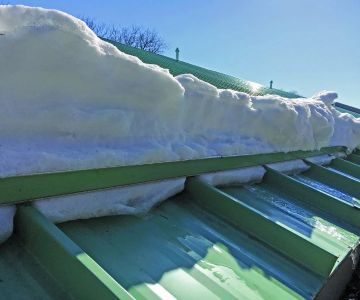
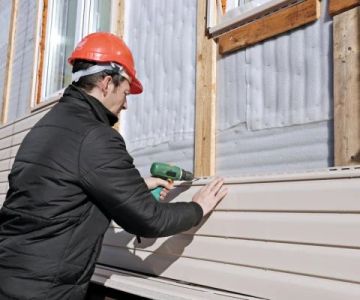
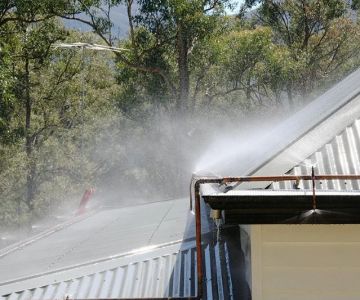
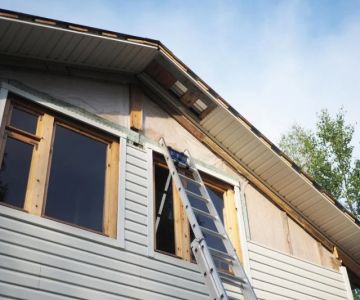

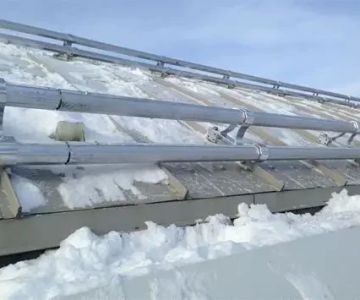
 Skyline Designs Roofing5.0 (99 reviews)
Skyline Designs Roofing5.0 (99 reviews) Perfect Roofing Installations4.0 (60 reviews)
Perfect Roofing Installations4.0 (60 reviews) Dog Tags Construction LLC4.0 (16 reviews)
Dog Tags Construction LLC4.0 (16 reviews) Gutter Shutter of Central Maryland5.0 (9 reviews)
Gutter Shutter of Central Maryland5.0 (9 reviews) Sam Cline Handyman Services4.0 (37 reviews)
Sam Cline Handyman Services4.0 (37 reviews) Paramount Builders Inc.4.0 (302 reviews)
Paramount Builders Inc.4.0 (302 reviews) Should I Repair or Replace My Roof?
Should I Repair or Replace My Roof? Top 10 Signs Your Roof Needs Immediate Repair Before It’s Too Late
Top 10 Signs Your Roof Needs Immediate Repair Before It’s Too Late The Pros and Cons of Vinyl Siding: Is It the Right Choice for Your Home?
The Pros and Cons of Vinyl Siding: Is It the Right Choice for Your Home? How to Choose a Reliable Roofing Contractor Near You – Expert Tips
How to Choose a Reliable Roofing Contractor Near You – Expert Tips Top 10 Signs Your Roof Needs Immediate Repair You Shouldn’t Ignore
Top 10 Signs Your Roof Needs Immediate Repair You Shouldn’t Ignore How to Spot Hail Damage on Your Roof | Quick Guide for Homeowners
How to Spot Hail Damage on Your Roof | Quick Guide for Homeowners